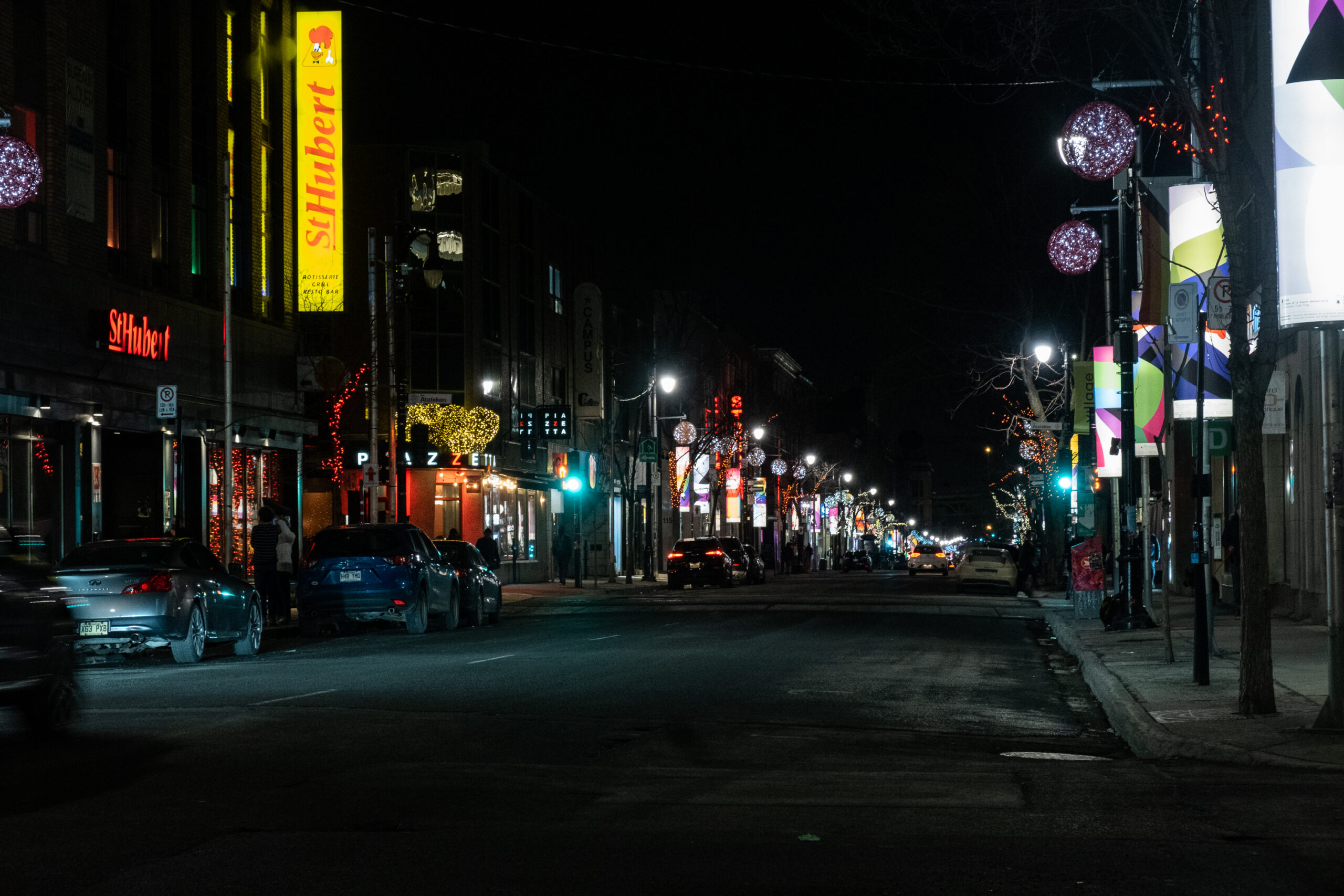How are the Village’s remaining businesses responding amidst several closures and moves in regarding the situation?
The stretch of St-Catherine Street between Berri and Papineau is the commercial and entertainment heart of Montreal’s Village, previously known as the Gay Village. However, it is lined with more and more desolate and deserted buildings awaiting new owners. Businesses in the Village are either closing shop permanently or moving out of the Village in growing numbers.
Arnaud Glay is the owner of Le Passé Composé, a restaurant that has been at the corner of De Maisonneuve Blvd. and Visitation Street for three years. They made the difficult decision in January to permanently close their doors and move out of the Village.
The business explained their decision was based on issues with “fire, theft, vandalism, the presence of syringes and human feces on our terrace every day, and the physical harassment of our employees and customers,” according to their Facebook post.
Emma Monique, who works as a manager at Pizzeria Bros, was recently transferred from the Pizzeria Bros franchise restaurant in the Old Port to their location in the Village and has already noticed a stark difference between the two locations.
Regularly during the evening and night, unhoused people walk into the restaurant and beg her for food, money, or both. When she declines, they sometimes become aggressive.
“I’ve been called every name under the sun for refusing to give people free food, and they could yell, threaten to do stuff,” she said. “I’ve had somebody threaten to pee on the floor just because I couldn’t provide them with free stuff.”
Monique said that the restaurant is losing customers due to these issues—customers leave the restaurant because they’re scared or because they can’t get in due to someone using drugs directly in front of the restaurant.
Pizzeria Bros is only open until 10 p.m., while the Village’s nightlife stays open much later, usually until 3 a.m. Bar Le Cocktail owner Luc Généreux, fears for the safety of his staff and clients since his business stays open late.
“There are a lot of intoxicated people on the street. Our employees really don’t feel safe leaving work,” Généreux said.
According to Généreux, the police are called regularly to the bar, either by staff or the customers. The Village’s issues mainly affect the bar’s terrace. Last summer was the worst ever for Bar Le Cocktail’s terrace, Généreux said, with the business losing 90 per cent of its terrace revenue.
He originally purchased the bar in 2010, and he says these social issues have always existed in the Village but got much worse with the pandemic.
According to a 2023 report from Quebec’s Public Health Institute (INSPQ), the amount of unhoused people in Quebec has risen 44 per cent since 2018. That same report blames the shortage of affordable housing and COVID-19 for the increase. A different 2022 census created by Quebec’s Ministry of Health and Social Services found 4,960 unhoused people living in Montreal, almost double the 2018 figure.
Many unhoused people from around the city are driven to the Village due to the wealth and concentration of resources available for them, according to Généreux.
The main approach the management of both Pizzeria Bros and Bar Le Cocktail have taken to dealing with this problem is teaching their staff how to best deal with unhoused people, and encouraging a friendly approach meant to avoid escalating the situation, or incite aggressiveness or violence.
Prohibition is a chain of cannabis-focused drug accessory stores located across the city, including a location in the middle of the Village. While they deal with the same issues as other businesses in the area, they also gained new customers, according to one of its managers, Yoan Mailhot. Additionally, sales of certain drug-related items such as blowtorches and crack pipes have spiked heavily in the past couple of years.
Despite these business advantages, they also have had to cope with other issues that are increasingly common in the area. “Stealing is a big thing here. Compared to other stores, let’s say,” Mailhot said.
The shop has also had to deal with erratic and visibly extremely intoxicated customers.
Despite the challenges they encounter in the Village, some businesses like Bar Le Cocktail are closely connected to queer culture and the queer community, which makes them very hesitant about a prospective move.
“I don’t think we’d have success outside [the Village], maybe,” Généreux said. “I won’t take that risk. I think that our business must be in the Village.”
